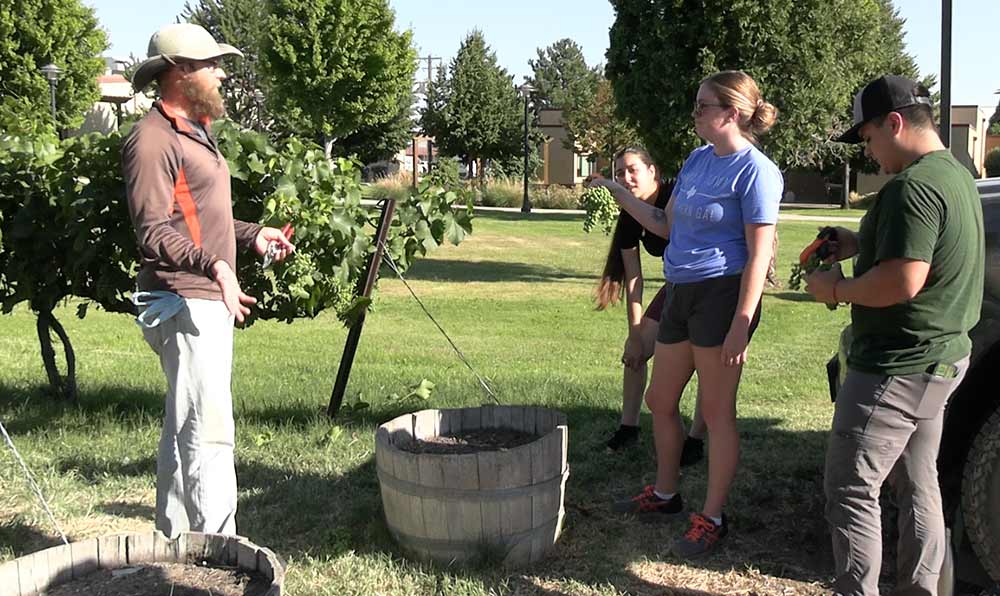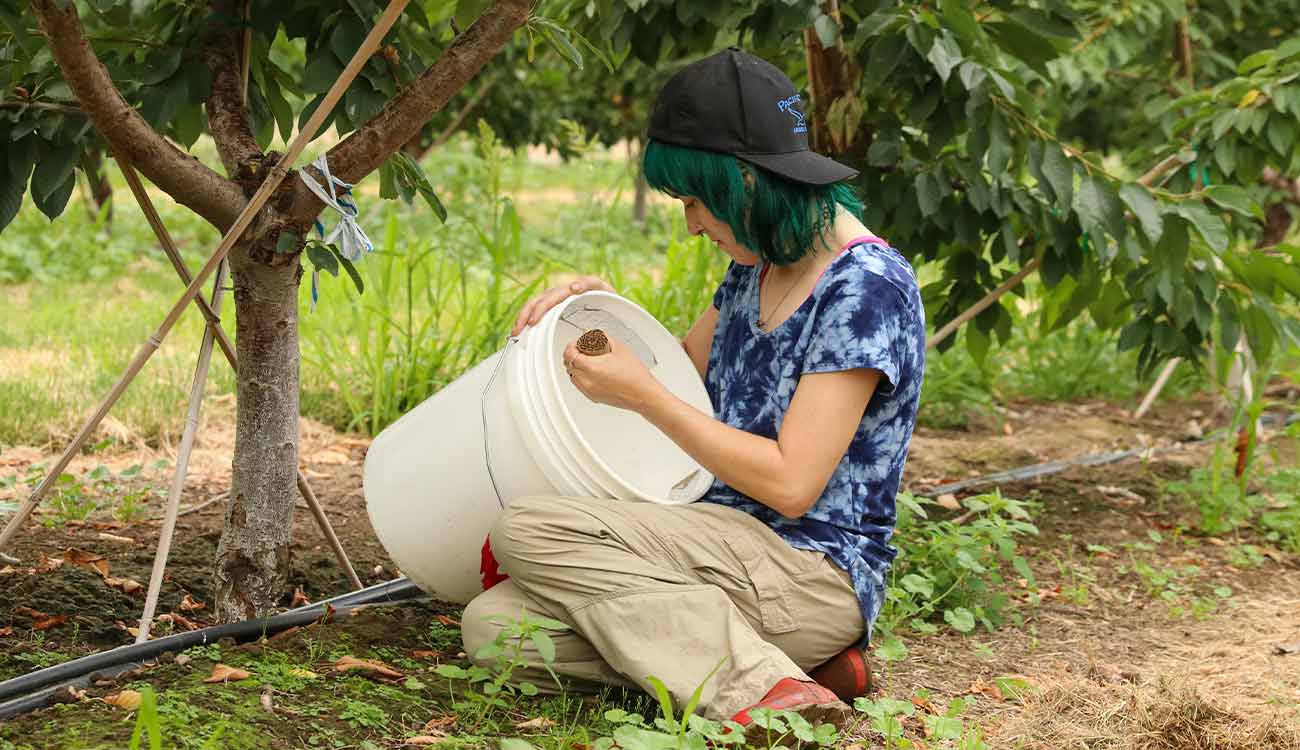First cohort in new bachelor’s program begin their studies
As a young boy growing up in the Cayman Islands, Jordan Wilson remembers the first time he planted a mango seed. The fascination he felt watching the seed grow was the beginning of a lifelong passion for agriculture that would eventually bring him to Yakima Valley College.
Having already earned his associate degree in agriculture at YVC, Wilson is now a member of the first cohort of the college’s new Bachelor of Applied Science in Agricultural Sciences (BASAG). He and his classmates are helping seed a program that aims to help emerging leaders in the industry take the next step in their careers.
For Wilson, that means a future return to his homeland.
“The agriculture industry is dying there [in the Cayman Islands] and they need someone there to help rejuvenate that industry,” Wilson said. “I feel like me going back with this degree I’m earning, it could definitely impact the industry a lot.”
Fostering leaders
The Yakima Valley is one of the nation’s most dynamic agricultural regions notes Brian Bodah, lead instructor for the BASAG program, with rapid job growth and increasing use of technology to improve efficiency. Yet a significant portion of the current workforce, particularly those in leadership roles, are 65 or older. That means agricultural producers need to identify and prepare a new generation of highly-skilled managers who can sustain both their industry and the region’s overall economy.

“Our program is geared toward a wide variety of people that are working in agriculture, whether it might be in a packing house, in a winery or on a farm,” Bodah said. “These people have already found their passion. What they say is ‘I like ag. I want to work in ag. But I want to work my way up into management.’”
YVC’s program is designed to make that a win-win proposition for both individuals looking to take the next step in their careers and their employers.
Many companies have employees who demonstrate tremendous promise, but need additional education in order to advance into higher-level roles.
“Our program was designed to work with those companies and to say, ‘Look, we’re not going to take this valuable employee off of the production line, out of the work environment. They’re still going to be able to come to work’,” Bodah said. “This is a program that they can complete a couple of nights per week over two years and then at the end they can just move up the ladder and stay right where they are. Right where they’re happy.”
“You’re not just learning the concepts, you’re learning how to apply them.”
— Instructor Brian Bodah
BASAG student Samantha Mallery previously earned her associate degree from YVC’s Vineyard and Winery Technology program and is an enologist for Owen Roe Winery. She noted that what she’s learning in the program pays immediate dividends at her job.
“I really, really like being able to apply what I’m doing in class that day to something I did that day at work or that week at work or I’m going to do in two months,” Mallery said.
While completing her associate degree, for example, she received an introduction to pest management.
“But with [the BASAG program] we actually have two classes where we’re going to deep dive into that issue,” she said. “We’re going to go around the valley. We’re going to go between orchards and vineyards and hops. And we’re actually going to observe the pests and we’re going to do different things with those experiences that I can then apply in my day-to-day work. I then become more valuable and I can move along in my career.”
Real-life learning
A focus on applied learning is central to YVC’s program says Bodah.
“You’re not just learning the concepts, you’re learning how to apply them,” he said. That means students will frequently visit a variety of local agricultural operations or dive into case studies of real world situations in the industry.
“Let’s see a concept in action, and then, let’s take A, B and C that you’ve learned and apply it to your own venture,” Bodah said.
For example, if a student wants to manage a hop farm in the future, they’ll be able to develop a business plan for that potential farm as part of their coursework.
“Let’s talk about what labor you’re going to need. Let’s talk about inputs — it’s not cheap to put in a hop farm. Let’s talk about what you’re going to need to make that farm successful,” Bodah said.
“You can really round out yourself as an employee, as someone in the industry who brings a lot to the table.”
— Samantha Mallery
That applied experience is important for Wilson, who wants to gain as much experience as possible in the industry before returning to the Cayman Islands.
“I’m doing various internships to gain experience out in the fields and combining that with my classes so that I can apply what I’m learning,” Wilson said. “It’s that real-life experience that is so valuable for what I want to do in the future.”
Moreover, because BASAG students bring experience with them from working in the agriculture industry, their knowledge can enrich classroom discussions.
“I myself am not a winemaker,” Bodah said. “So if one of my students is a winemaker, I’m going to rely on his or her expertise and first-hand knowledge when we talk about the process of making wines or growing grapes or marketing that wine.”
Another distinctive feature of the program is that it uses a cohort model, with students spending their two years in the program with each other taking the same classes.
“The most valuable aspect of that, when you’re done, is those relationships you make over that two years, that network you’ve gained,” Bodah said. Classmates can learn one another’s strengths and build trust, which can lead to future business opportunities.
While Mallery has a passion for the wine industry, she also appreciates how well-rounded the BASAG program is.
“If something were to ever happen with the grape industry I could go to apples, I could go to row crop, I could go anywhere in the valley and walk in and get a job doing something because I have this knowledge base,” she said. “You not only get the pest management and the machinery but you also get the business management side of it. The economics, the [human resources], the communications. And you can really round out yourself as an employee, as someone in the industry who brings a lot to the table.”
